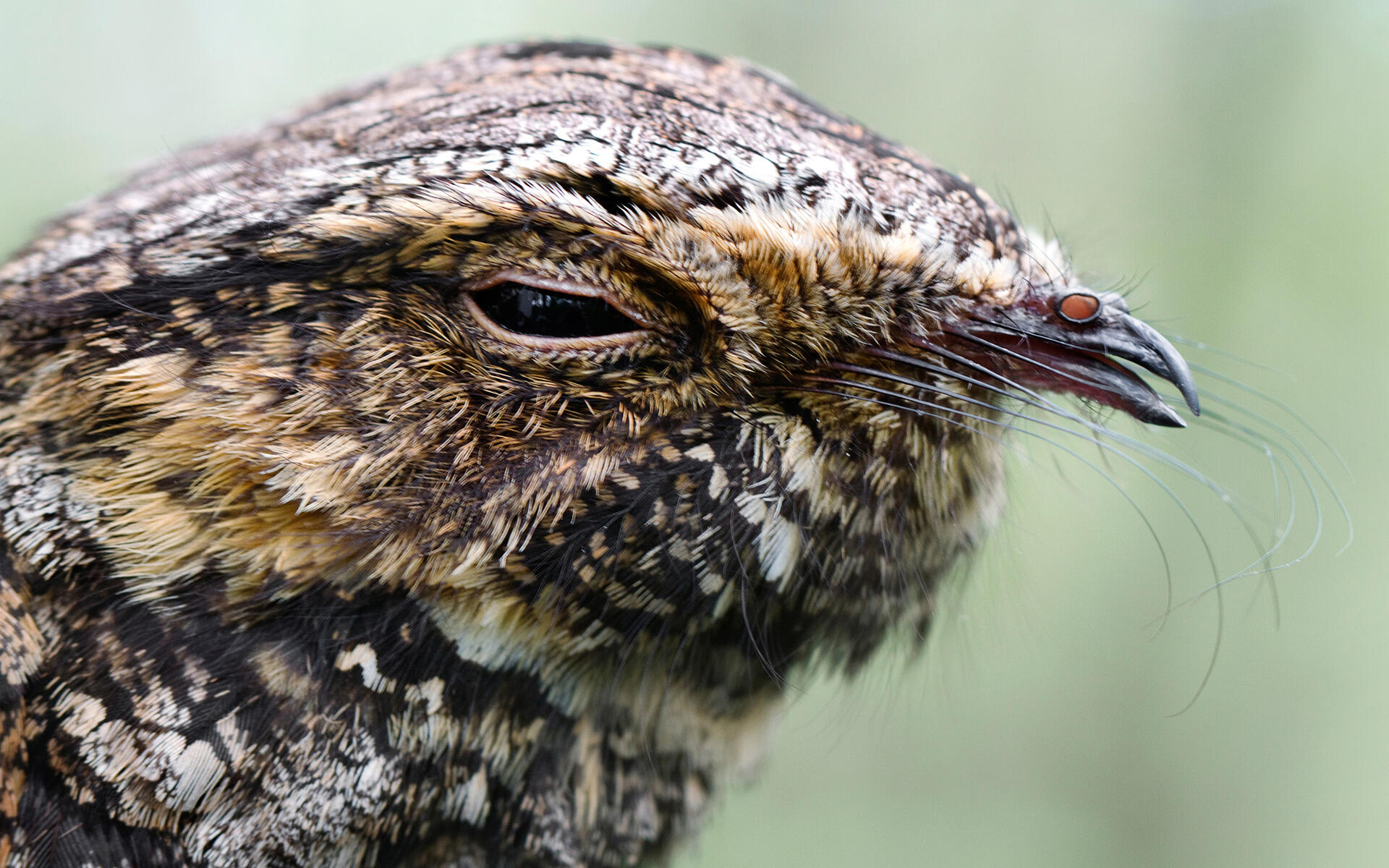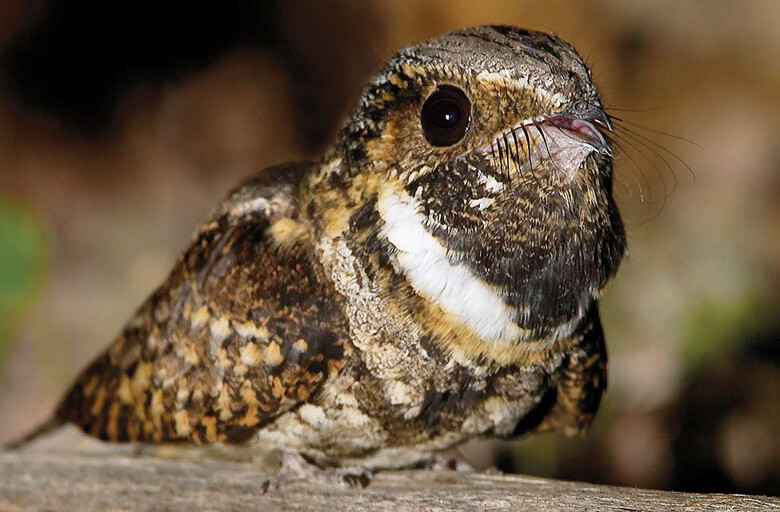
I am the whippoorwill that cries in the night. No, actually—I’m just a guy. But sometimes I do cry in the night.
After sunset, you can hear whippoorwills sing their own name. Scientists call them “goatsuckers” in Latin. Guess how they got that name. There is not a poet born in America who hasn’t been wooed by these goatsuckers.
According to the great F. Schuyler Mathews:[1]
The song is weird; there is nothing like it in all of Nature’s music. It is a perfectly rhythmical, metallic whistle which could be written out intelligibly by a series of dashes, thus:
There are many possible musical transcriptions of the whippoorwill’s song. No two birds will sing exactly the same. Technically, it’s not even a song, and whippoorwills aren’t even songbirds. They just happen to perch on tree branches and make sounds to try to have sex exactly like songbirds do, but whatever.
This version fits nicely into A minor blues with a blue note. The phrase begins on an A root, followed by a quick triplet winding up from the sevenths, resolving on a quick minor third, and repeat. When slowed down, it sounds like there could be four notes instead of a triplet, so I took some artistic license above.
“Whip-poor-will” used to be spelt with hyphens a century ago. Nobody uses hyphens anymore, because they’re racist. “Whip poor Will,” and they bloody meant it! Lower class children were always getting beaten, especially when they grew too big to fit into the machines. There was an entire job known as “the whipping boy.” Modern ornithologists are wont to cover up this uncomfortable fact, but I’m on to those assholes.

I am the goatsucker that sucks goats in the night.
Notes:
[1] Mathews, F. Schuyler, (1921), Fieldbook of Wild Birds and Their Music.




